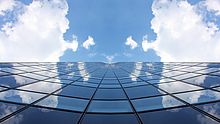The German Buildings Energy Act (Gebäudeenergiegesetz, GEG) is a central instrument within German energy and climate protection policies. Its purpose is to ensure that the targets of the Federal Government’s energy policies are achieved – in particular, a largely climate-neutral inventory of existing buildings by 2045 and around 40 per cent savings in final energy consumption through efficiency measures on the building envelope and construction technology compared with 2020. The ordinance defines structural and heating system standards for buildings and specifies the energy efficiency for new builds and the refurbishment of existing buildings. The GEG came into force on 1 November 2020 and unified the German Energy Saving Act (Energieeinsparungsgesetz, EnEG), the German Energy Saving Ordinance (Energieeinsparverordnung, EnEV) and the German Renewable Energies Heat Act (Erneuerbare-Energien-Wärmegesetz, EEWärmeG). The effectiveness of the act is further supported by other standards and laws.
Increasing energy efficiency through education
The acceptance of measures to increase energy efficiency in the building sector must be achieved using comprehensive information campaigns, competent advice and expert planning combined with targeted state funding. Current instruments within the regulatory framework, funding and market cultivation should therefore be expanded and strengthened in a deliberate manner. Moreover, an individual concept must be prepared based on independent, qualified advice on energy to select the right energy source and most suitable technology for each individual building.
One option for presenting the results of an energy consultation in a way that is clear and easy-to-understand is the individual refurbishment roadmap for residential buildings (individueller Sanierungsfahrplan für Wohngebäude, iSFP). This tool is suitable for creating roadmaps for step-by-step refurbishment as well as complete refurbishment that is done all in one go. Current information as well as downloads of the manual, quick guide and checklist for the iSFP can be found at the Climate-neutral Building Forum.
GEG surgeries for energy consultants
The Climate-neutral Building Forum’s service team offers surgeries for experts that are intended to ensure the provision of qualified advice on energy. For questions regarding special projects related to the German Buildings Energy Act (GEG), the individual refurbishment roadmap for residential buildings (iSFP) or energy balance, energy consultants can contact the service team by phone or use the online contact form from 10 am to 12 pm on Mondays, Wednesdays and Thursdays and from 2 pm to 4 pm on Mondays. Experts will find additional information on the GEG, EnEV, standards and laws in the Climate-neutral Building Forum.



